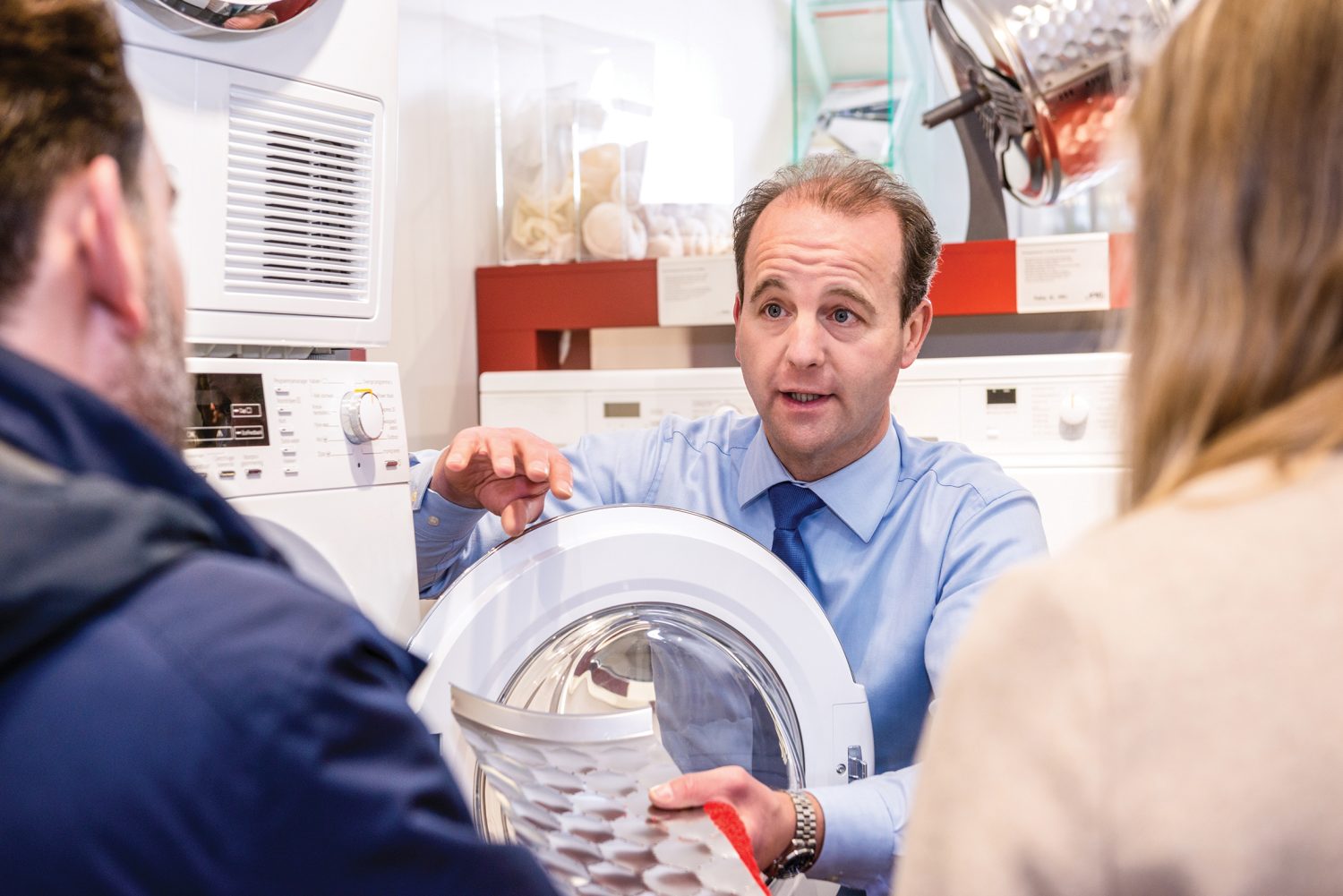By Daniel Todaro, Managing Director of Gekko
The green agenda is a discussion with consumers that extends beyond the realms of novelty, it’s now the norm for all and standard parlance in any sales demonstration as most consumers will have questions. So what should retailers be doing to appeal to their consumers when they land in your store to purchase a new product and looking to receive a superb customer experience?
It’s worth remembering that ‘eco’ doesn’t just refer to running costs or energy consumption. Insights specialists Kantar points out that consumers are increasingly making ‘values-based purchases’; more than ever consumers are looking long-term with their purchases and looking for environmentally-friendly manufacturing, durability, repairability as well as of course efficiency.
Look at the facts as published by 52 Huge and realise the opportunity through a clear sales approach that brings sustainability into the conversation early, as sustainable products have an overall 17 per cent market share and an opportunity for 32 per cent share of growth. This is evident by the fact that products marketed as ‘sustainable’ grew 2.7 times faster than those that were not, and for those who operate an omnichannel retail experience, three quarters of sustainable goods sell better online than in-store.
However, when it comes to what matters with your customers, 78 per cent of consumers feel that sustainability is important, with 62 per cent of people saying that they “always or often” seek products to purchase because they are sustainable. Of these, over half of consumers are willing to pay more for eco-friendly brands.
It’s also interesting to note 2023 research from the UK Government and The Behavioural Insights Team, which indicated that while 49 per cent of consumers knew where to find energy labels on products in-store, they ‘tended to trust and depend on sales advisors to educate and aid them with energy labels’.
 It seems that many people do not truly understand what they mean. How can it be that this legal requirement by manufacturers and retailers to measure and display on products is compulsory and yet still so few know the true meaning of such ratings? Imagine how you could enhance your sales by helping customers understand the ratings better, enabling an easier process to up-sell through a product range.
It seems that many people do not truly understand what they mean. How can it be that this legal requirement by manufacturers and retailers to measure and display on products is compulsory and yet still so few know the true meaning of such ratings? Imagine how you could enhance your sales by helping customers understand the ratings better, enabling an easier process to up-sell through a product range.
With so many layers to unpack, it’s important that you get the facts from those brands you sell within your store and online. Ask for the details and insist that they train your staff in areas of sustainability in relation to the brand ethos and their range. Without the facts, your sales team can’t qualify questions and sell comfortably to consumers. Work collaboratively, as a team, with your brands to enhance the customer journey and their overall experience.
Other useful areas for discussion with your customers when assisting the sales journey should look to include the following, as highlighted by Utilities One:
- Reduced energy consumption: Energy-efficient appliances consume significantly less compared to their conventional counterparts; this translates to lower electricity bills and reduced strain on power grids
- Environmental impact: Energy-efficient appliances reduce the demand for electricity generated by fossil fuels; this, in turn, lowers greenhouse gas emissions and contributes to combating climate change
- Long-term savings: While energy-efficient appliances may have a higher upfront cost, their lower energy consumption results in long-term cost savings and can offset the initial investment
- Extended lifespan: Energy-efficient appliances are often built with higher-quality components, resulting in increased durability and longer lifespans. This reduces the need for frequent replacements and helps decrease waste.
Complement these tips with brand-related facts and information. This level of detail enables the shopper to feel better informed and as a consequence is more likely to buy, as it responds to their sustainability quest and enables them to make considered purchasing decisions.
Your customer should feel that they are talking to a competent and knowledgeable individual that creates trust in the sales process, which in turn elevates not only your sales but also your relationship with your customer. It’s a win-win – so encourage and welcome sales and brand training whenever it is offered, as it really does equip those on the front line to create rewarding connections for all, including your customers, on the shop floor and online.
You can read ERT’s Eco Appliances feature in the latest magazine edition.


